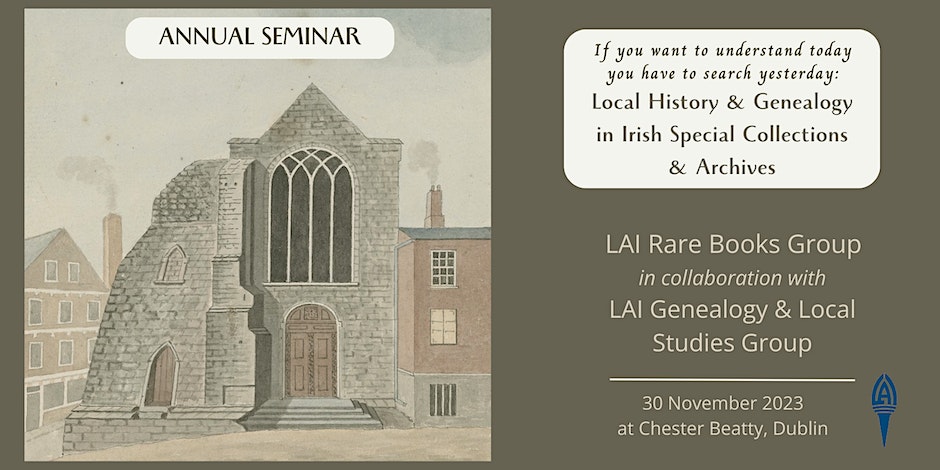
PROJECT OBJECTIVES
We are looking to appoint an external Service Provider to design and implement a learning module to equip public library staff in Ireland with the skills needed to provide media literacy training to adult library users. The learning module should be developed in consultation with the stakeholders listed below and should incorporate a review of the current curriculum for library staff around media literacy, as well as a needs assessment using user design principles for library staff, communities, and adult library users.
The project objectives are to:
- Review the current curriculum for library staff around media literacy.
- Identify the needs of library staff, communities, and adult library users in media literacy.
- Empower library staff to offer media literacy training to adult library users, by providing staff with a learning module that supports them in developing the skills relevant to their role in supporting library users and communities in media literacy.
Develop a framework and method for the delivery of media literacy training to adult users, and evaluate same through a pilot project.
- Help library staff to engage their local communities on media literacy-related issues.
BACKGROUND
Our Public Libraries 2022 – Inspiring, Connecting and Empowering Communities is an ambitious strategy from Government to develop the public library service over the next five years. Building on technological and service innovations of recent years, it focuses on improving access, use and visibility of the public library and establishing it as the go-to place for a range of sustainable, integrated public services.
The strategy is underpinned by four strategic objectives, the first of which is spreading information and literacy skills. It celebrates public libraries as attractive and welcoming spaces where all members of the community can access knowledge, ideas and information, and where people can reflect, connect and learn. Over the lifetime of the strategy, the public library will be firmly established as a welcoming go-to-place locally with skilled staff providing guidance and support across a range of areas. Staff will be supported to develop and enhance their skills, and to develop the confidence and capacity to be leaders both for library users and for their fellow team members.
As well as public library representatives from the Local Government Management Agency (LGMA) and local library authorities, this project includes representatives from Facebook and the National Adult Literacy Agency (NALA), plus members of Media Literacy Ireland. Between NALA tutors and public library staff, there is a need to further develop skills around media literacy. Recent events (e.g. Covid19 pandemic) have sped up the need for this development. The partnership approach is an important component of the project.
PROJECT REQUIREMENTS
The Service Provider will develop and deliver a training module for library staff focusing on media literacy.
The project will include:
- Reviewing existing media literacy training materials for library staff and users to understand current best practice in the field
- Consultation with Irish public library staff, managers and other stakeholders which may include online, other survey techniques and workshops.
- Designing and developing a media literacy training programme for library staff in consultation with project partners.
- Delivering the programme on a pilot basis, with the application of an evaluation framework, and providing recommendations for full roll out.
- Regular liaison with the project partners to review progress and set direction.
REPORTING REQUIREMENTS
The key reporting and liaison contact will be with the Libraries Development Unit of the LGMA.
It is envisaged that the Service Provider will sit on a working group (meeting weekly for an hour for the duration of the project) and a steering group (meeting monthly for an hour for the duration of the project) set up to support the project.
Progress reports will be supplied when requested for the duration of the project.
The person who will take overall responsibility for the project should be named within the tender document. Please provide full contact details for two referees.
DELIVERABLES
The following deliverables shall be produced by the Service Provider:
- A review of the current curriculum for library staff around media literacy.
- A media literacy needs assessment for both library staff and library users to determine priority issues and how they can be solved.
- A learning module for library staff, including content and delivery framework.
- Delivery of the learning module through training in a pilot project.
- Given the current context of COVID-19 restrictions the module should be able to be delivered online, but be flexible enough to be delivered in person once face to face training can resume.
- A report on the pilot, including recommendations post pilot for the full roll out of the learning module.
KEY STAKEHOLDERS
To develop the skills audit, the Service Provider will be required to seek opinion and information from the following:
- Libraries Development, Local Government Management Agency (LGMA)
- National Adult Literacy Agency (NALA)
- City and County Librarians
- Library staff across all grades, as relevant
BUDGET
Please provide a breakdown of costs including an estimate of the number of days’ work involved and an overall project costing including VAT.
The budget for this project is expected to be no more than €12,000, inclusive of VAT.
PROJECT TIMEFRAME
It is expected that the work will take place between February and mid-March 2021, with the learning module ready for roll-out within 4-6 weeks of the project award.
DEADLINE FOR SUBMISSION OF QUOTES
Quotes to undertake this work should be sent to mhaiceid@lgma.ie no later than 17.30pm on February 1st 2021.
For further information please contact mhaiceid@lgma.ie.



